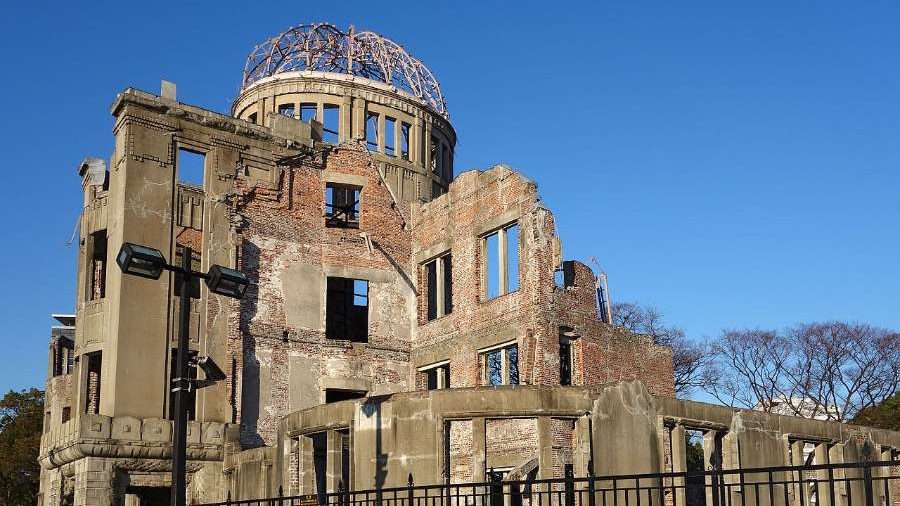The Catholic bishops of Hiroshima and Nagasaki welcomed the United Nations treaty banning nuclear weapons that came into force Friday, while expressing disappointment that Japan was not a signatory.
“As Catholic bishops and Japanese citizens of the A-bombed cities, we share Pope Francis’ confidence that a world free of nuclear weapons is possible and necessary ‘to protect all life,’” the two bishops wrote in a joint statement Jan. 22.
Archbishop Mitsuaki Takami of Nagasaki and Bishop Mitsuru Shirahama of Hiroshima hailed the UN Treaty on the Prohibition of Nuclear Weapons (TPNW) as an “effective measure for the abolition of nuclear weapons.”
The nuclear ban treaty, which came into force on Jan. 22, is the first multilateral nuclear disarmament treaty in more than two decades. It was signed by 86 states, including the Holy See but excluding the world’s nine nuclear powers.
The United States, Russia, China, France, the United Kingdom, Israel, and other countries possessing nuclear weapons did not sign or ratify the treaty, nor did some ally countries of nuclear powers, including South Korea and Japan.
The Japanese bishops said that the “last major barrier that must be overcome before all countries join the treaty … is the persistence of the deterrence theory held by nuclear-armed states and countries such as Japan under the so-called nuclear umbrella.”
“The Japanese government argues that ‘it is necessary to maintain the deterrence of the United States with nuclear weapons under the Japan-US alliance.’ But as the only country to ever be attacked with atomic weapons, Japan should take the lead in signing and ratifying and play a role in promoting dialogue toward nuclear disarmament between nuclear-weapon states and non-nuclear-weapon states,” they said.
Pope Francis visited the ground zero site of the 1945 nuclear attack on Nagasaki on his most recent international trip in November 2019. About 70,000 people died instantly and in the immediate aftermath of the bombing of Nagasaki and another 75,000 by the end of the month.
Nagasaki was a center of Catholicism in Japan for more than four centuries. When the bomb was dropped, 8,500 of the city’s 12,000 Catholics were killed instantly.
“This place makes us deeply aware of the pain and horror that we human beings are capable of inflicting upon one another,” Pope Francis said.
In an interview published on Jan. 21, the Vatican Secretary for Relations with States Archbishop Paul Gallagher said that the Holy See actively participated in the drafting process of the nuclear ban treaty and that “many of its provisions recall directly or indirectly the centrality of the human person [and] the humanitarian paradigm.”
He pointed out that the Holy See has ratified all the main nuclear treaties: the Treaty on the Non-Proliferation of Nuclear Weapons, the Comprehensive Nuclear-Test-Ban Treaty, the TPNW, and the safeguards agreements with the International Atomic Energy Agency.
“We are concerned that the nuclear powers often seem to be turning away from nuclear multilateralism and the negotiating table, as evidenced by a certain erosion of the nuclear weapons architecture, highlighted by the abandonment of the Intermediate-Range Nuclear Forces (INF) Treaty, the weakening of the Iranian JCPOA (Comprehensive Joint Plan of Action), the uncertainty of the future of the aforementioned START [Strategic Arms Reduction Treaty], and increasing military spending not only on maintenance but also on the modernization of nuclear arsenals,” Gallagher said.
“International peace and security cannot be based on the threat of mutual destruction or total annihilation, nor can they be based on maintaining a balance of power or regulating relations by replacing ‘the force of law’ with ‘the law of force.’”
“The ultimate goal of the total elimination of nuclear weapons is both a challenge and a moral and humanitarian imperative,” the Vatican official said.

